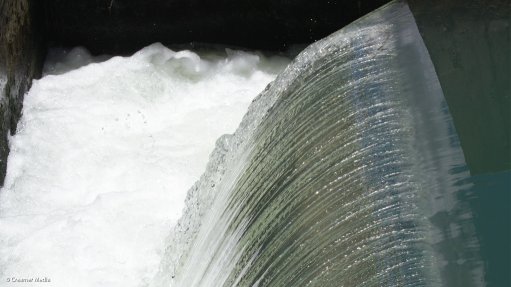Conservation as cost
The conservation movement has been around for a long time. In its modern version, it can be traced to the curiosity of early explorers like Charles Darwin, Alfred Russell Wallace, Alexander von Humboldt and many others. That we think of it as an artefact of civilised life is due to the dominance of humans as a species.
In Africa, the history of colonialism was one of hunting and decimation of wildlife, and these were later reversed, as nature could be enjoyed for its own sake, even if this was only for the privileged classes.
Conservation also has a dark history – if you consider the way in which indigenous people were deprived of their ancestral lands and rights to nature. We still have to come to terms with that history, which includes the widespread slaughter of wildlife during unregulated hunting sprees involving different kinds of imperial explorers.
Just think of the origins of the Kruger National Park, which is a global icon today. It was established by the then President of the Transvaal, Paul Kruger, in 1898, to protect wildlife from extensive hunting in the Lowveld. Kruger, on the advice of his Scottish silent whisperer, James Stevenson-Hamilton, the first warden of the Sabie Game Reserve (later renamed the Kruger National Park), used the protected area model as a defensive position replicating the Yellowstone model, in the US, which was established by former US President Teddy Roosevelt.
Defensive positions have been the mainstay of conservation and the ‘conservation as cost’ argument has in later life in the history of conservation taken a more apologetic tone: it had to justify its existence not only on its own terms but also as value to the economy.
Western philosophical views of nature have evolved over the past 300 years and one cannot always decry that conservation is just a relic of a colonial imperial past. However, developmental needs within the African continent – which still has significant land of value that can be used for agriculture, mining or other purposes – place conservation in direct confrontation with the quest for economic development and wellbeing.
Traditional conservation itself is also receiving a baptism of fire from ideological contenders. Traditional models of conservation are confronted with a whole new suite of worldviews and values about nature. These vary from leaving nature alone to the overturning of the very economic system that rules the world today, namely capitalism. Jason Moore, for example, argues that we are not in the Age of the Anthropocene but rather the Age of Capitalocene. Moore suggests that the notion of the Anthropocene is not a sufficient critique of the root causes of the climate and environmental crisis but that it is capitalism itself that we must turn on its head.
These debates throw up the fact that whatever happens to nature involves some kind of politics of nature, to lift a fig leaf from Bruno Latour, and the question of what to do about nature is entirely a social process. The fact that we give ourselves a special status among species merely builds an artificial divide between the nature-human nexus. Since social life is so self-absorbing, anthropocentrism consumes all values and our views of the world.
Whether nature is incorporated within the human system is entirely a product of whether we take the view that nature has value in its own right. In a recent book, Down to Earth: Politics in the New Climate Regime, Latour raises the failure of ecologists to fire up the popular imagination largely because they have failed to create a much broader political movement beyond themselves.
In emerging economies, mainstream bread-and-butter issues can limit the prospects of a broader conservation movement. This constant battle to be ‘economic utility’ chides proponents of conservation when they raise their voices as not helping but adding costs.
Since the power of economics is the dominant value, intrinsic values have long been displaced by the economic logic – nature only matters if it is a cost or a benefit. So, all our arguments for or against nature must develop a special treatment: it must be given economic justification and thus be monetised.
Historically, conservationists have had to move from a public good mindset to a ‘privatised’ model or hybrid models (between public and private) to preserve the conservation estate. Richer nonprofits and foundations have been buying out land – as much as they can afford – to build strategic defence measures and cede this land to public entities in perpetuity.
So, for it not to be seen as a cost, conservation must fund itself in order to preserve itself – which is also one of the key mainstream economic ideas. It must demonstrate that it is a saviour for itself and for the development agencies pressing governments to shift land use from pristine to development projects, whether these projects entail the building of a factory, the erection of a railway track crossing boundaries in irreverence to the traversing rights of Africa’s iconic species like elephants, or turning communities from poaching to community conservation and livelihood schemes.
As they would say, the task is Sisyphean, as it is not only money that plagues the good cause but the very sustainability of the cause is dependent on the values we can instil. That achievement has a long way to go as the weight of economic utility continues to dominate all other values for now. The sums going into saving conservation are minuscule, compared with what we spend on other things.
Conservation’s soul can only be saved by a wider front, and economic arguments are only one arm of this front. We must turn back to values to mobilise altruism rather than just money.
Article Enquiry
Email Article
Save Article
Feedback
To advertise email advertising@creamermedia.co.za or click here
Announcements
What's On
Subscribe to improve your user experience...
Option 1 (equivalent of R125 a month):
Receive a weekly copy of Creamer Media's Engineering News & Mining Weekly magazine
(print copy for those in South Africa and e-magazine for those outside of South Africa)
Receive daily email newsletters
Access to full search results
Access archive of magazine back copies
Access to Projects in Progress
Access to ONE Research Report of your choice in PDF format
Option 2 (equivalent of R375 a month):
All benefits from Option 1
PLUS
Access to Creamer Media's Research Channel Africa for ALL Research Reports, in PDF format, on various industrial and mining sectors
including Electricity; Water; Energy Transition; Hydrogen; Roads, Rail and Ports; Coal; Gold; Platinum; Battery Metals; etc.
Already a subscriber?
Forgotten your password?
Receive weekly copy of Creamer Media's Engineering News & Mining Weekly magazine (print copy for those in South Africa and e-magazine for those outside of South Africa)
➕
Recieve daily email newsletters
➕
Access to full search results
➕
Access archive of magazine back copies
➕
Access to Projects in Progress
➕
Access to ONE Research Report of your choice in PDF format
RESEARCH CHANNEL AFRICA
R4500 (equivalent of R375 a month)
SUBSCRIBEAll benefits from Option 1
➕
Access to Creamer Media's Research Channel Africa for ALL Research Reports on various industrial and mining sectors, in PDF format, including on:
Electricity
➕
Water
➕
Energy Transition
➕
Hydrogen
➕
Roads, Rail and Ports
➕
Coal
➕
Gold
➕
Platinum
➕
Battery Metals
➕
etc.
Receive all benefits from Option 1 or Option 2 delivered to numerous people at your company
➕
Multiple User names and Passwords for simultaneous log-ins
➕
Intranet integration access to all in your organisation

















